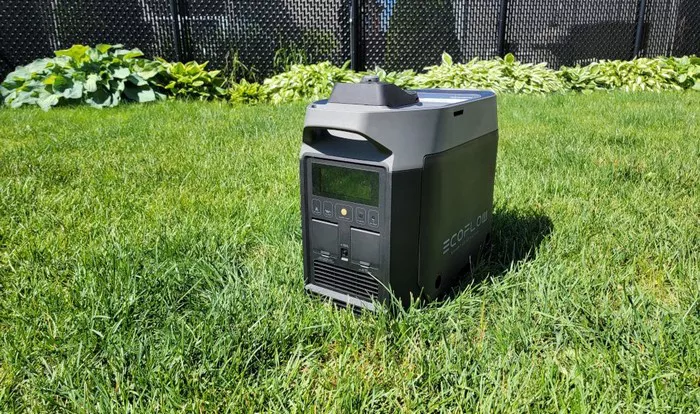Generators have become indispensable in ensuring uninterrupted power supply during outages, at remote sites, or in areas where grid power is unreliable. One common question among users and engineers alike is whether a generator can run all night—or even longer—without risking damage or efficiency loss. This article dives deep into the mechanics, fuel considerations, operational guidelines, and safety factors surrounding continuous generator use, providing an expert perspective based on engineering principles and real-world applications.
What Happens When a Generator Runs Continuously?
At its core, a generator converts mechanical energy into electrical energy, typically through electromagnetic induction. The mechanical energy is supplied by an internal combustion engine powered by diesel, gasoline, natural gas, or propane, or by alternative technologies such as permanent magnet generators and direct drive generators.
When a generator runs continuously for extended periods—such as overnight or even days—the engine and alternator components experience constant mechanical and thermal stresses. Properly designed industrial generators and heavy duty generators are built to withstand these stresses, but operational best practices must be followed to prevent wear and tear.
Key Factors Affecting Continuous Operation
1. Type of Generator and Its Design
The type of generator is fundamental in determining whether it can run all night safely. For example, standby generators are designed for emergency use and usually run only for short durations, while industrial generators and whole house generators are engineered for prolonged continuous use.
Inverter generators, favored for portability and quiet operation, may not be intended for extended continuous operation, as their cooling systems are optimized for intermittent use. Conversely, diesel-powered generators diesel-powered generators and natural gas generators are often equipped with robust cooling and lubrication systems that support long runtimes.
2. Fuel Supply and Quality
Continuous operation hinges on a reliable and adequate fuel supply. For gasoline generators, fuel volatility and evaporation can cause problems if the unit runs too long. Diesel and natural gas generators benefit from steady fuel flow, but fuel contamination or poor quality can lead to engine knocking, clogging, or incomplete combustion.
3. Cooling and Lubrication Systems
Generators generate significant heat when running, especially under heavy loads. Adequate cooling, typically via radiator or air cooling systems, prevents overheating that can damage engine parts and reduce efficiency. Lubrication systems ensure engine components move smoothly, minimizing wear.
4. Load Management
Operating a generator near or at its maximum rated capacity continuously can accelerate wear and increase fuel consumption. It’s advisable to operate generators at 70-80% load for optimal longevity. Overloading can lead to overheating, increased emissions, and mechanical failure.
How Long Can a Generator Run Continuously?
Technically, many generators—especially heavy duty and industrial types—can run continuously for 24 to 72 hours or more if properly maintained and fueled. However, manufacturers often recommend scheduled rest periods and maintenance checks after 8 to 12 hours of continuous use to ensure reliable operation.
For home or portable generators, continuous running overnight is possible, but monitoring is critical. Some users install inverter generators or dual-fuel generators designed for quieter and longer operation.
Maintenance Considerations for Continuous Use
Routine Checks
During prolonged operation, periodically checking oil levels, coolant temperature, fuel pressure, and exhaust emissions is essential. Anomalies such as unusual vibrations, smoke, or overheating signals should prompt immediate shutdown and inspection.
Scheduled Maintenance
Generators running continuously require more frequent oil changes, air filter replacements, and inspection of belts and hoses. Preventive maintenance extends the generator’s life and avoids catastrophic failures.
Safety Concerns When Running Generators All Night
Safety is paramount when running generators overnight, especially in residential settings. Carbon monoxide poisoning risks demand proper ventilation, preferably operating generators outdoors or in well-ventilated areas.
Fuel storage and handling should comply with fire safety codes. Never refuel a hot generator to avoid fire hazards. Using certified transfer switches and proper electrical connections reduces the risk of backfeeding and electrical shocks.
Expert Recommendations for Overnight Generator Use
- Choose the right generator type: For overnight use, prefer models rated for continuous operation, such as industrial or standby generators with sufficient cooling capacity.
- Monitor load and fuel supply: Avoid overloading and ensure ample fuel to prevent unexpected shutdowns.
- Perform routine inspections: Check oil, coolant, and emissions regularly during long runtimes.
- Ensure safe placement and ventilation: Run generators outdoors, away from living spaces, with clear ventilation paths.
- Schedule maintenance: Follow manufacturer guidelines strictly for oil changes and component replacements.
Conclusion
Running a generator all night is feasible when the right equipment and operational protocols are in place. Industrial-grade and standby generators, especially those designed with advanced cooling and lubrication, can sustain extended runtimes if properly maintained and fueled. Smaller portable or inverter generators may support overnight use but require vigilant monitoring and adherence to load limits.
Ultimately, understanding your generator’s specifications, maintaining it well, and following safety protocols are key to ensuring continuous, reliable power without risking damage or hazards.
FAQs
Can all generators run continuously without stopping?
No. Not all generators are designed for continuous operation. Portable and inverter generators typically have limited continuous runtimes, while heavy duty and industrial generators are engineered for longer use.
How often should I check my generator when running overnight?
It is recommended to check your generator at least every 4 to 6 hours to monitor oil levels, temperature, and fuel supply, especially during prolonged operation.
Is it safe to run a gasoline generator inside the house overnight?
No. Gasoline generators emit carbon monoxide, which is deadly indoors. Always operate generators outdoors in a well-ventilated area, away from windows and doors.
What type of fuel is best for overnight generator operation?
Diesel and natural gas are preferred for overnight or extended use due to stable fuel supply and cleaner combustion. Propane is also used but requires careful storage and supply management.
Does running a generator at full load overnight damage it?
Running a generator continuously at full load increases wear and risk of overheating. Operating at 70-80% load is recommended for longevity and efficiency.

